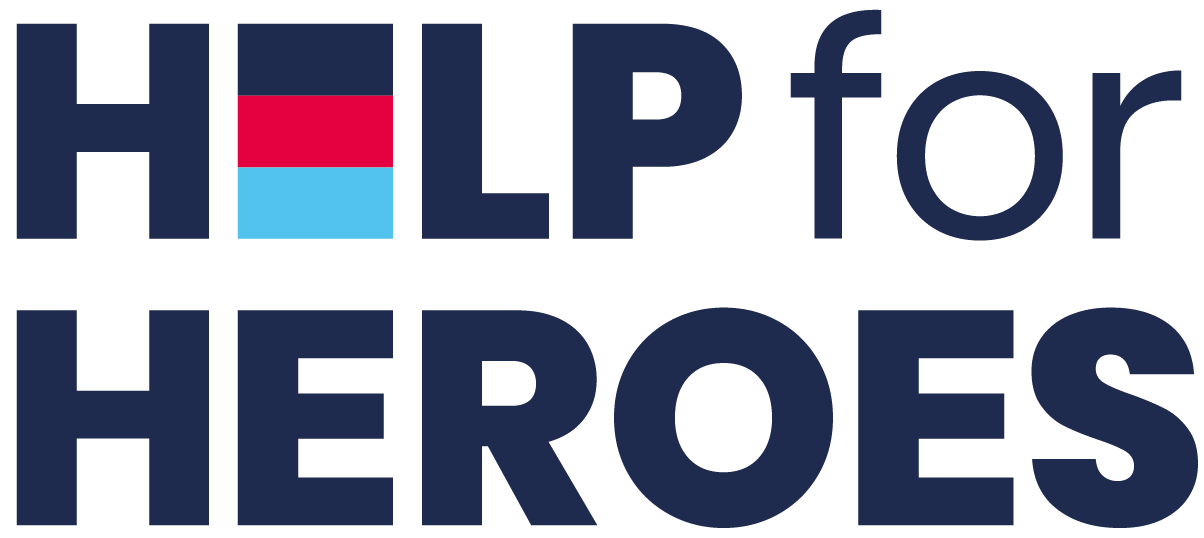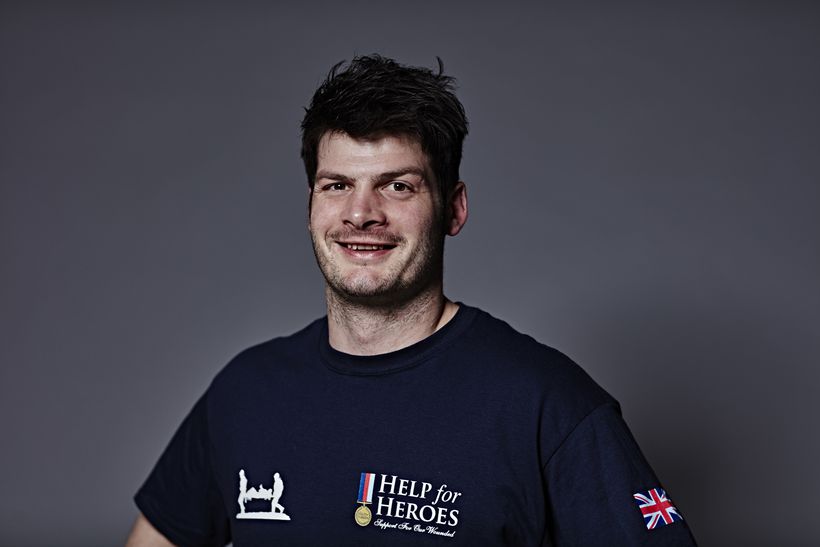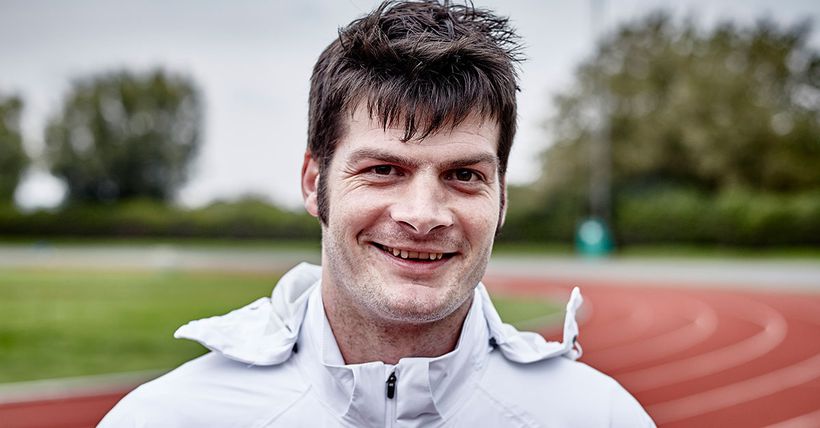Updated on
Military Paralympian Dave Henson joined the Army in 2008, serving with the Royal Engineers. In February 2011, he was deployed to Afghanistan and on a “normal day on operations” he stood on an IED.
“It was just a normal day on operations. I went across the compound to gain line of sight with the infantry guys we were working with and turned around and then then that was it. Blown up….
“The next thing I knew I was awake in Camp Bastion hospital in the evening after my lads had loaded me on the helicopter. And that was that – legless.”
That was the moment that changed everything for Dave. With both legs amputated above the knee his time in the Army was over and he was facing a long, difficult recovery.
“I think adjustment takes quite a while and it’s certainly a big challenge” he explains, but, for Dave, the process started long before he set foot on the battlefields of Afghanistan: “You’re operating with an idea that something might happen to you so the possibility of injury is always in the back of your mind.” Even with this attitude it took a long six months before he had fully adjusted, both physically and mentally, to his injuries.
For some, losing their legs would be the greatest blow. However, for Dave, it was the loss of the career he had set his heart on since he was a teenager that hit the hardest. Dave was pragmatic about the situation, “You just get on with it!” he explains, “I decided around age 14 or 15 that I was going to join the Army. I lost my legs aged 26, that’s 10 years and I wasn’t done with it yet. That was the biggest blow for me – having that choice taken away.”
After leaving hospital and returning to his parent’s house Dave’s first interaction with Help for Heroes wasn’t on the track but with a mattress: “I couldn’t get up the stairs so had to sleep in the lounge. We didn’t have anything other than a sofa and it wasn’t working. I put a grant request in to Help for Heroes to get a decent sofa-bed. They provided it straight away. It made my family realise I was going to be looked after and they wouldn’t have to worry.”
It was at the Defence Medical Rehabilitation Centre, Headley Court that his association with Help for Heroes and sport really began: “When I was injured my family wanted to raise some money for Help for Heroes so they set about organising a series of open-water swims. When my wounds healed I joined them and I used the Help for Heroes Rehab Complex at Headley as a key part of my training routine.”
“Time is a big healer as anyone who has been through anything traumatic will know. It just takes time. Probably at 6 months in I had fully adjusted – not only to the physical side of the injury but to the mental side and the loss of career. That was probably the hardest adjustment to make.”
The next stop on Dave’s sporting journey was competing in swimming and volleyball at the Warrior Games in Colorado Springs in 2012 as part of the Help for Heroes Sports Recovery Team: “It’s a US competition for the Army, Navy, Air Force and Marines to compete against each other in different sports, and they invited a British team. Actually, it ended up inspiring the Invictus Games.”
Returning the following year, Dave met Roger Keller, the team’s photographer and a former semi-professional sprinter: “We got on really well so when I moved to London to do my Masters I gave him a call and asked if we could train together. It was through Help for Heroes Sports Recovery that I met my Coach.”
The two were funded by the Charity to go to Gran Canaria for intensive consolidation training. “The benefits were huge; getting time solidly with my coach in stable weather conditions was absolutely invaluable.” Help for Heroes also funded a set of racing blades and sockets for Dave: “This grant is an absolute game-changer for me; the new sockets will change the way I run, opening up a whole new avenue of opportunity and will hopefully help me to secure some really good times this season.”
Dave is quick to stress the importance of sport in his recovery as it has enabled him to move on after his injuries: “For the military, sport is massively important because it forms such a key part of our normal everyday working life pre-injury. To have the ability to regain what we might have thought was lost is huge.”
He’s certainly got stuck in with all Help for Heroes Sports Recovery has to offer; cycling, skiing, volleyball, wheelchair basketball and, of course athletics. “Trying so many sports has led me to where I am now.” That is the whole point of the Charity’s Sports Recovery Programme – to give those suffering due to service the chance to transform their lives through sport.
And what a transformation it has been for Dave. In three short years he went from being ‘legless’ [in his own words] to winning a gold medal in the IT2 200m race at Prince Harry’s inaugural Invictus Games in London, 2014. He was also the British Armed Forces Team Captain.
“The moment in my heart where I knew ‘this is real’ was at the opening ceremony. That was when I knew the Invictus Games is really going to change lives, not only for the people competing but everyone that’s watching too. That was a pretty special moment. I have to admit, I was a little bit teary.”
After the Invictus Games, Dave trained hard to become quicker, and two years later qualified for the 2016 Paralympic Games in Rio. He ran his way to a bronze medal in the 200m.
Watch Dave's inspiring ‘Road to Rio’ film, where he went on to win bronze!
“My goal for sports is to keep on doing it while I still enjoy it. There will probably come a time where my body starts to say ‘Dave, you’ve got to start taking it easy’. Certainly on the blades, because they are quite a big impact on your body. There’s a bit of a price to pay with running that quickly but at the minute my body is feeling alright and I’m still enjoying it so that’s my aim for sport – to go as far as I can, as fast as I can while I’m still smiling!”
Dave is quick to champion the support he has always received from the Charity: “I got the help I needed. That’s absolutely essential from my point of view. It’s a huge part of recovery.
As for any wounded servicemen and women thinking of asking for help, he is clear: “I urge you to just get in touch because there are so many different avenues of support on offer – it’s not just sport although sport just happens to be the one that ticked my boxes. Help for Heroes is going to make a real difference to the rest of your life and the sooner you get in touch the easier it’s going to be later on.”
“I think people underestimate the amount of care wounded servicemen and women will need over a lifetime. Without charities like Help for Heroes, and the support they offer, we would be lost. The people there are making sure we’re getting the most out of life for the long-term rather than just for now.”
While it takes strength to serve in the Armed Forces, it takes a different kind of strength to live life beyond injury. Some of our wounded heroes are living with injuries so severe, they are dependent on round-the-clock care. They were told they would never walk again, never talk again, never live independently again. But with the right support, they can defy the odds. #NeverSayNever
Sign up to receive news and information on how, together, we are providing vital support to veterans every day.
SIGN UP








